The Impact of Brexit on Student Perceptions
Brexit had a deep impact on the perceptions and expectations of the UK as a global study destination. EEA and non-EEA students reacted to the UK leaving the European Union in different ways. Our latest update refreshes the results of a previous survey, highlighting the shifting grounds of the expectations of international students.
We carried out a survey among prospective students assessing how students’ perceptions changed due to Brexit. This is the follow-up to a study we carried out in the spring of 2019: for a more in detail analysis check out the 2019’s Brexit Report.
Let’s start with the 2020 update! It is based on a qualified sample of 346 responses (158 from the EEA and 188 from the rest of the world) collected in September 2020 from a well-diversified sample of prospective students. British respondents are not included. The 2019 survey used for historical comparison is based on a larger pool of 1,876 prospective students.
Why is it important?
British HEIs rely heavily on students as tuition fees make up to roughly half of universities’ income. Thus the important role played by student offices, student recruitment, and university marketing.
And one in every four foreign students comes from the EU, which amounted to 5.5% of the total student enrolments for 2018/19.
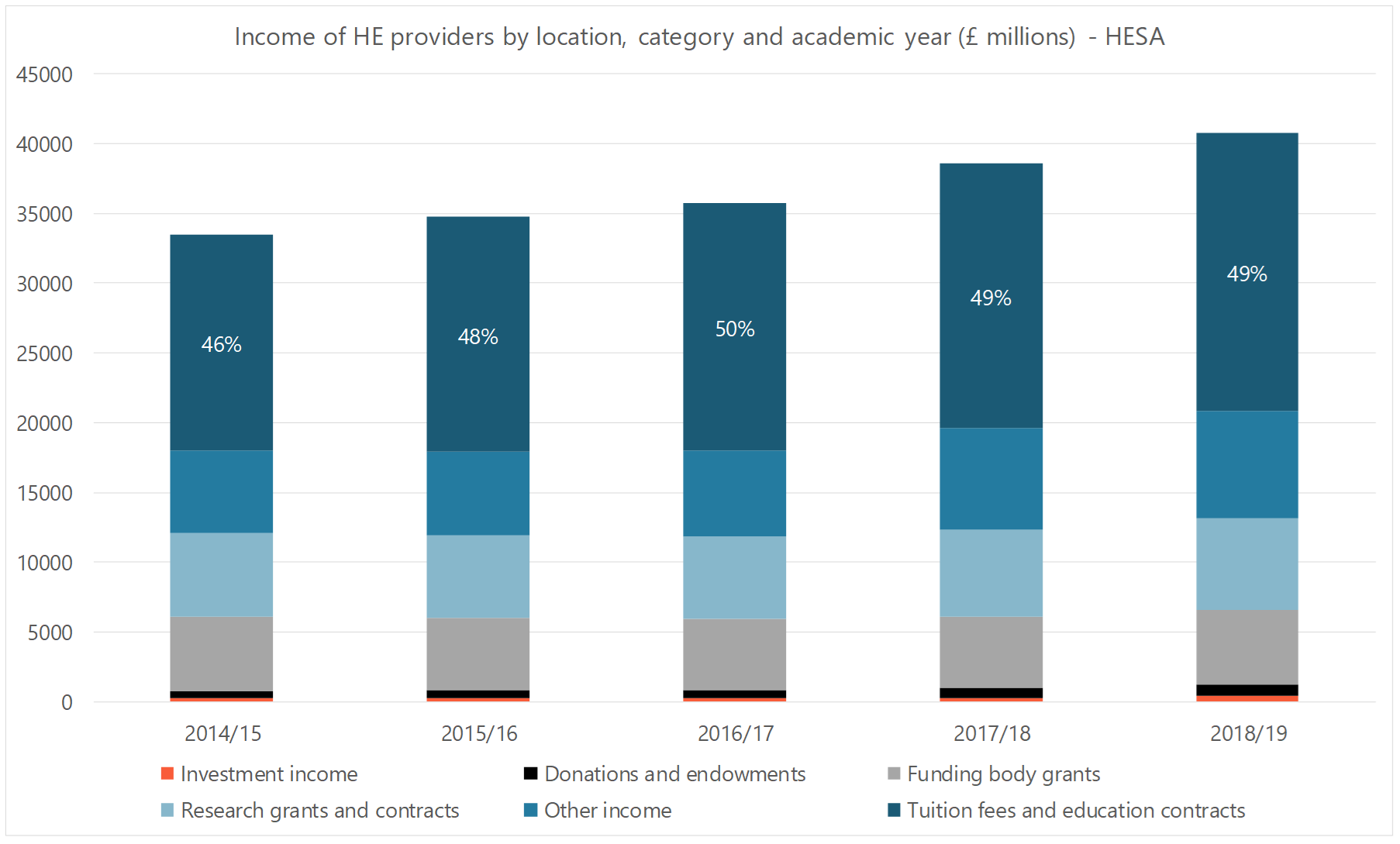
Source: HESA, Finance Chart 1 – Income of HE providers by location and category, Available at:
https://www.hesa.ac.uk/data-and-analysis/finances/chart-1
Did Brexit perceptions change? (yes)
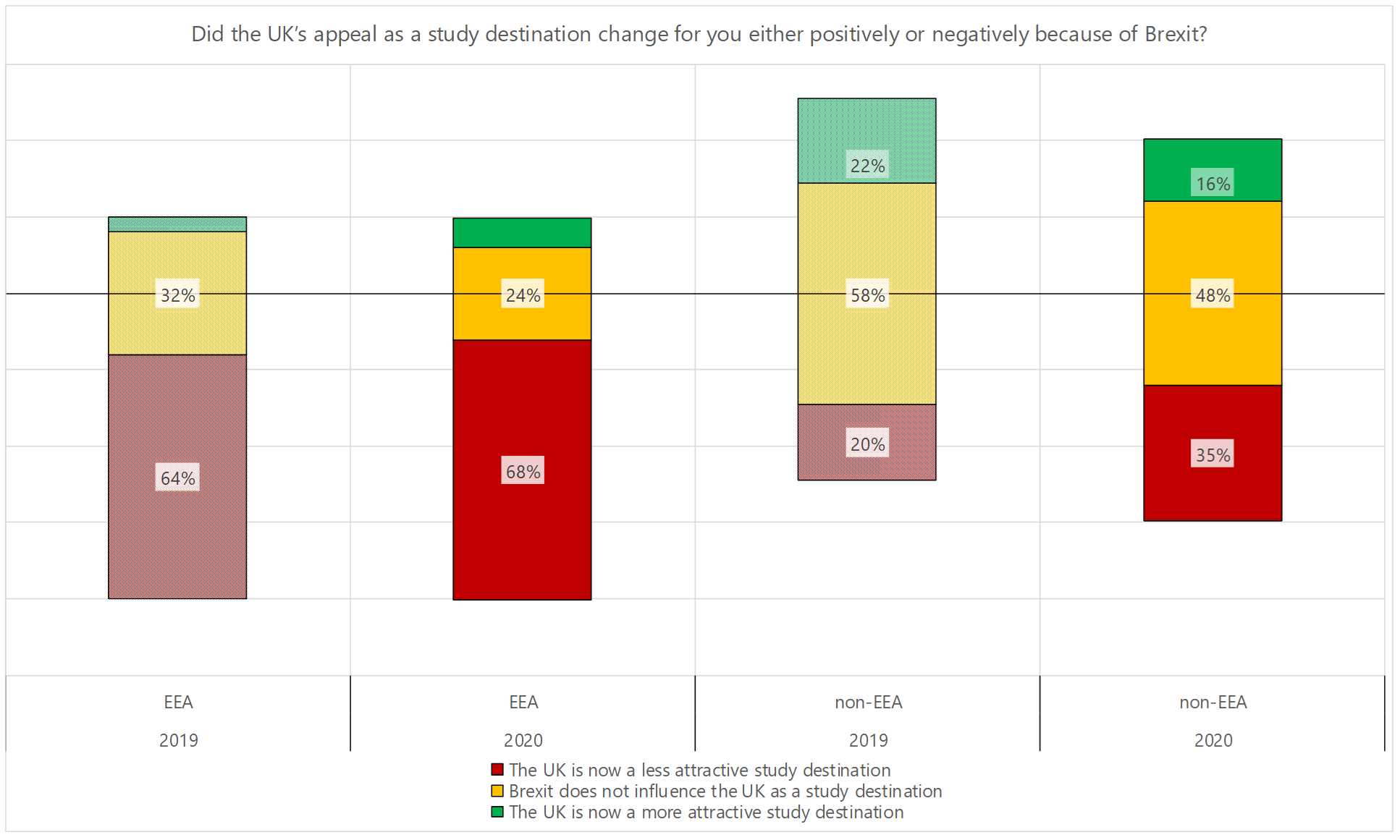
The change in perceptions has already happened. It began in 2019, with a majority of surveyed students expressing worsening views of the UK: at that time 64% of EEA students found the UK a less attractive study option at a time when only 20% of non-EEA students shared this view. The share of students still not influenced by Brexit was also larger in March 2019 – respectively 32% for EEA students and 58% for non-EEA.
The main takeaway is that negative perceptions seem to have spilled over to non-EEA students. The perceptions of EEA prospects remained roughly unchanged, but for students outside the EEA Brexit is having an impact as well.
What is on students’ minds when choosing a study programme?
Both EEA prospects and non-EEA prospects share similar concerns. Students – especially internationally mobile students – have their priorities set in a similar fashion. In particular, they care about:
- The costs: both the cost of studying and the cost of living top their list of priorities. EEA students seem more concerned about the cost of living, while fees are of most interest to non-EEA students.
- The outcomes: international recognition of the degree and employability after graduation are similarly important to both groups.
- Knowledge of the language ranks right below the previous issues.
Minor differences appear in secondary criteria (e.g. safety and parents’ expectations are more important for students outside the EEA).
However, the UK has a special appeal to international students that is hardly summarised with a cost-benefit relation. Previous academic studies as well as our experience hint that students are likely to apply for programmes that are highly matching their expectations (course suitability), offer quality education and help to jumpstart their careers.
To UK or not to UK?
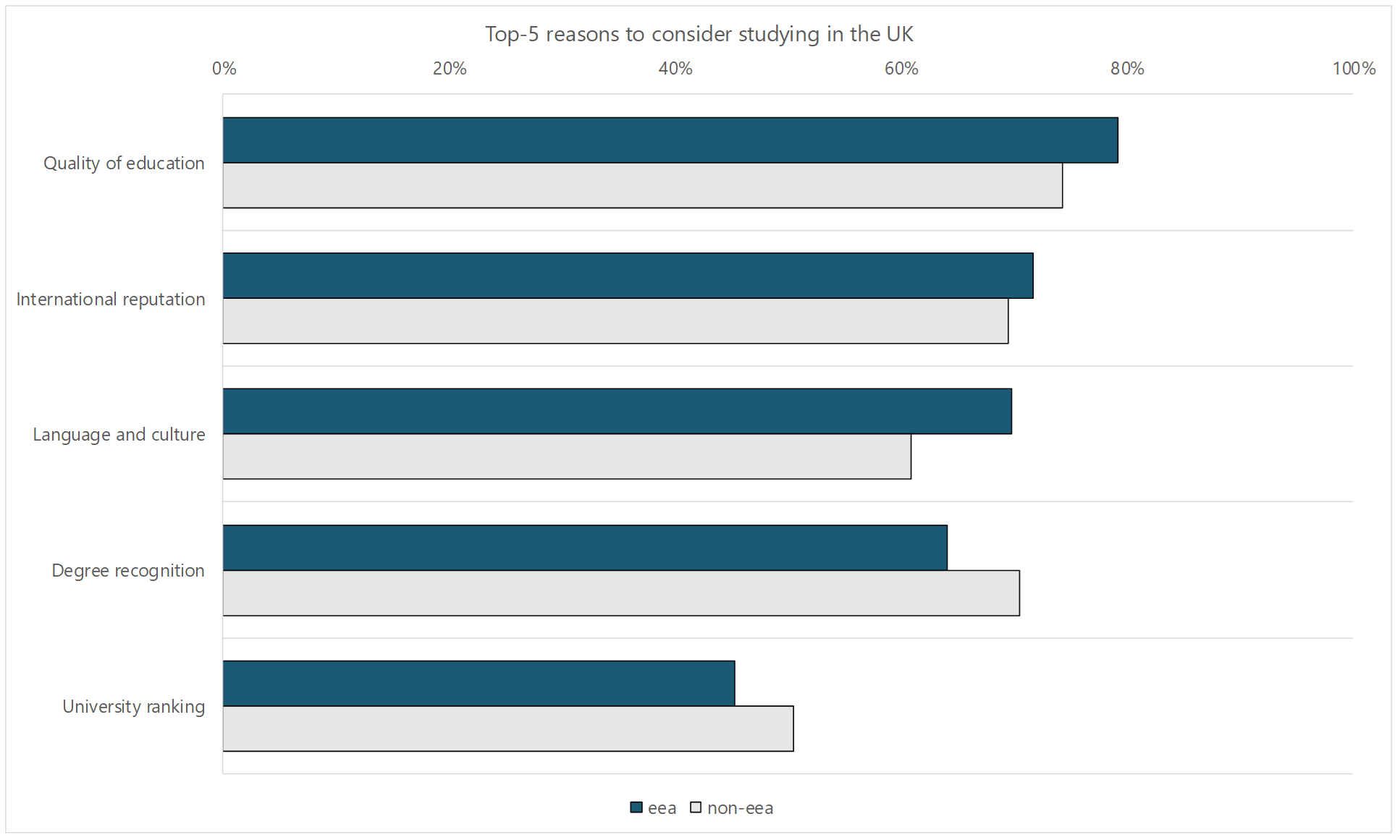
Students who had the UK among their top-3 destinations expressed why they had British education in their shortlist. These results confirm in both groups a solid value proposition: the UK is for internationals the place where they can pursue world-class high-quality education achieving wide recognition for their efforts.
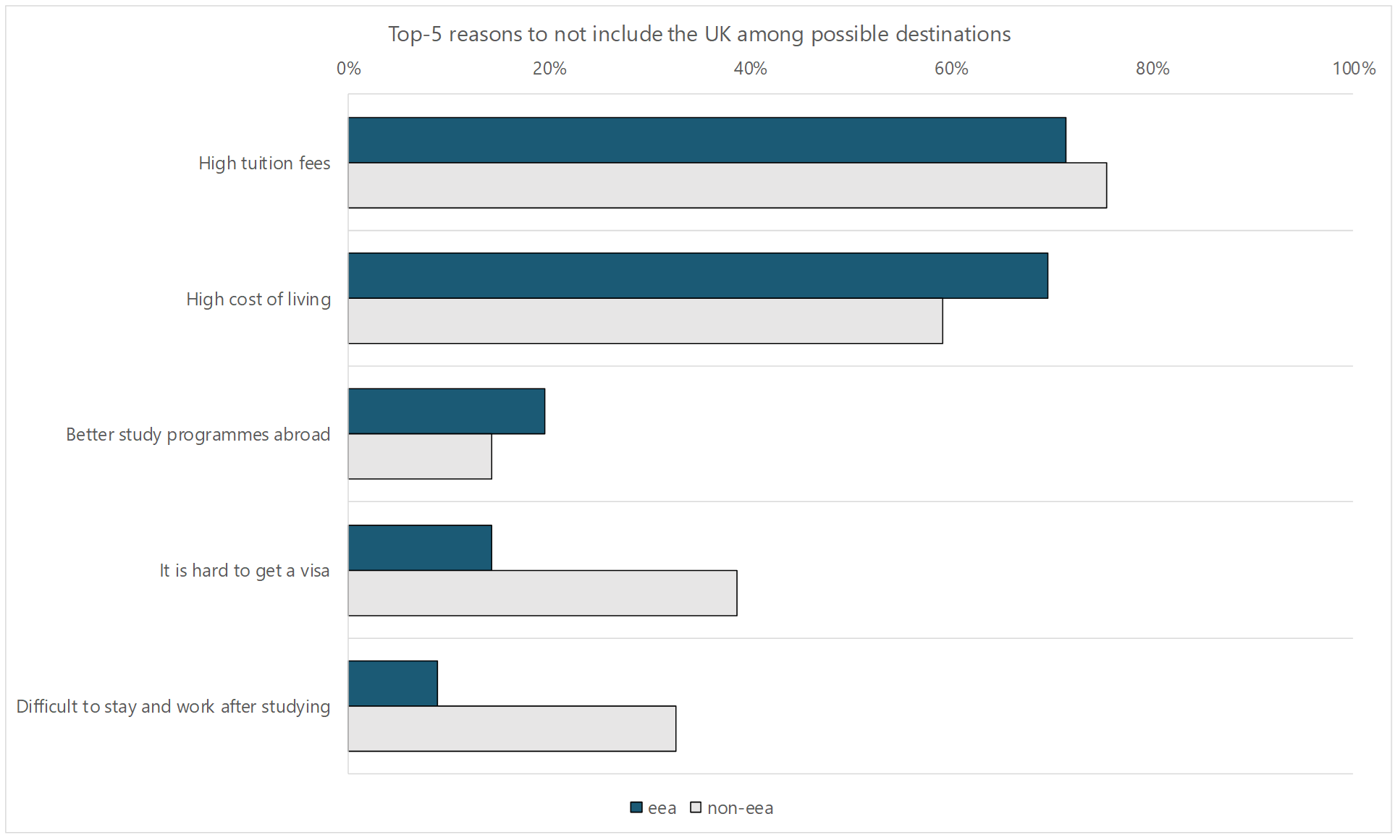
The ones who did not include the UK were asked to pick the reasons for declining this destination. This overview highlights the major pain points for prospective students: costs top the list for decliners, but also other obstacles appear to be significant. Accessibility is a major concern for non-EEA students, confirming previous surveys.
Managing students perceptions (among EEA prospects)
Participants were presented with a set of statements. It appears that most of them link Brexit to a worsening effect for international students. However, there are some positive notes coming in the form of student perceptions improving on certain issues.
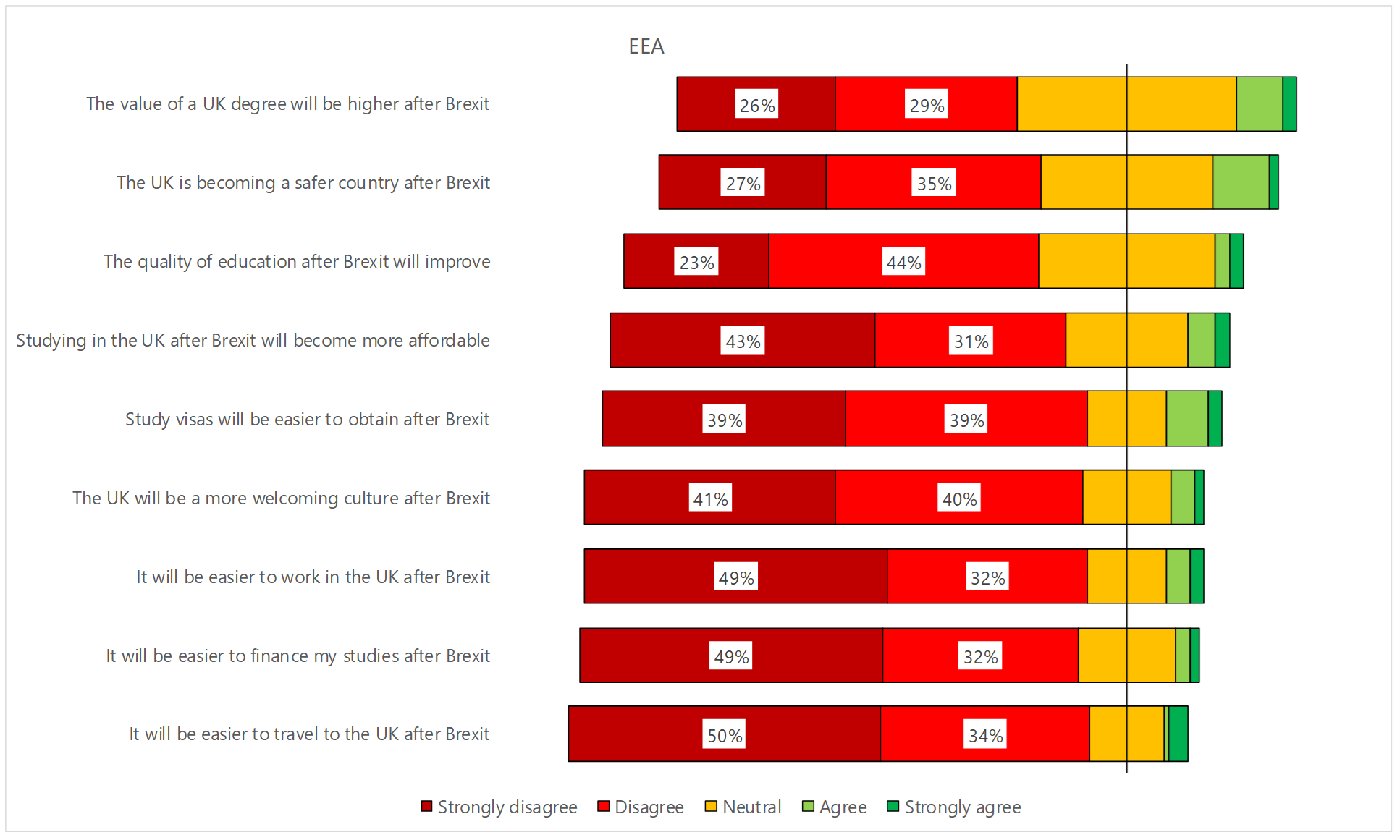
Despite the overall negative perceptions, almost all categories have slightly improved compared to March 2019. In particular, we saw two trends in the mind of EEA prospects:
- The UK seems to show a less welcoming culture;
- Students are more likely to agree to the idea that the value of a British degree will be higher after Brexit.
Ups and Downs: What are the perceptions of British Campuses overseas?
Studying in Europe and getting a British education is often a guarantee for great student experience and quality education. The prospect of studying in Europe excites a lukewarm response for Europeans and sees non-EEA students slightly more enthused by the idea.
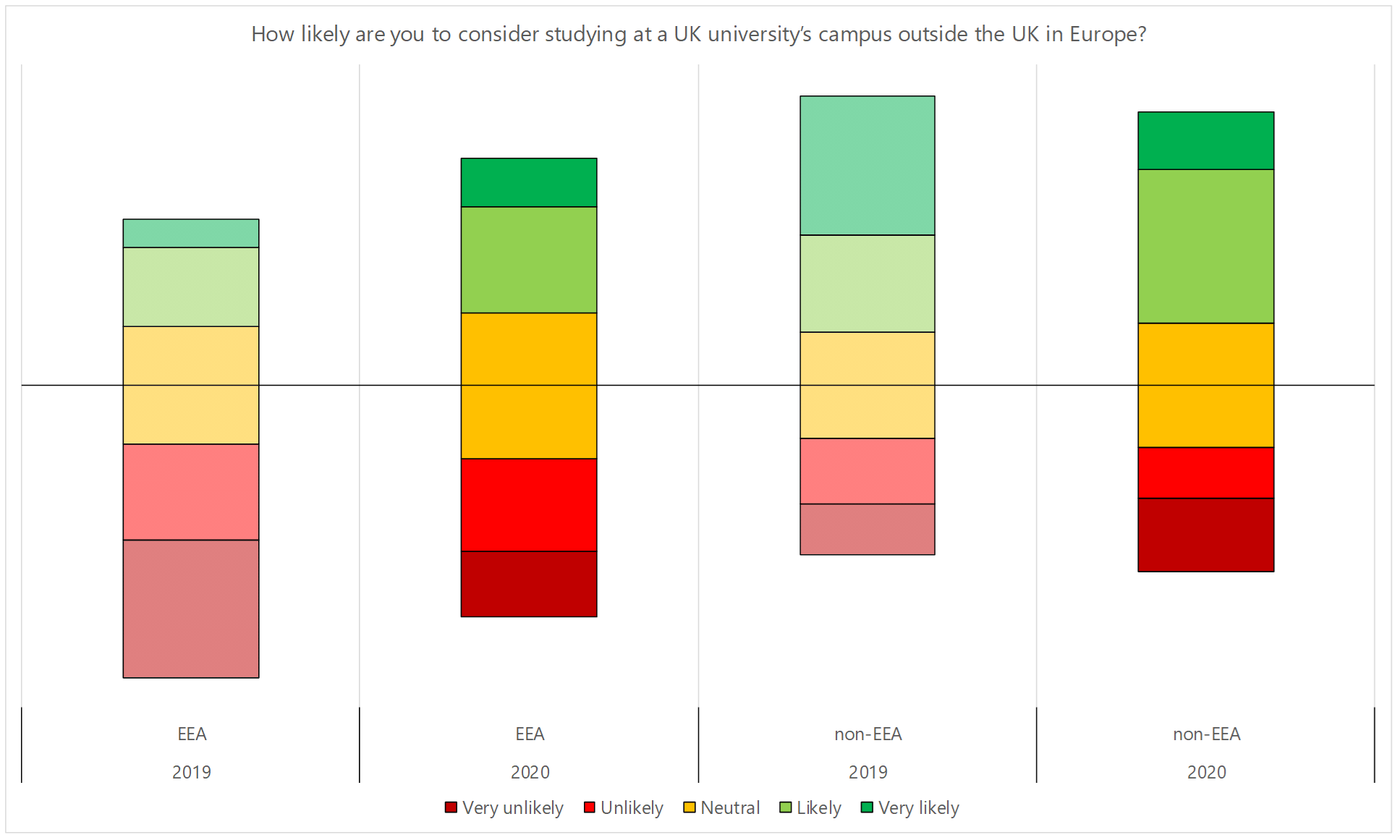
However, a second question is more telling of this topic. The idea of studying at a British university at home is a polarising issue.
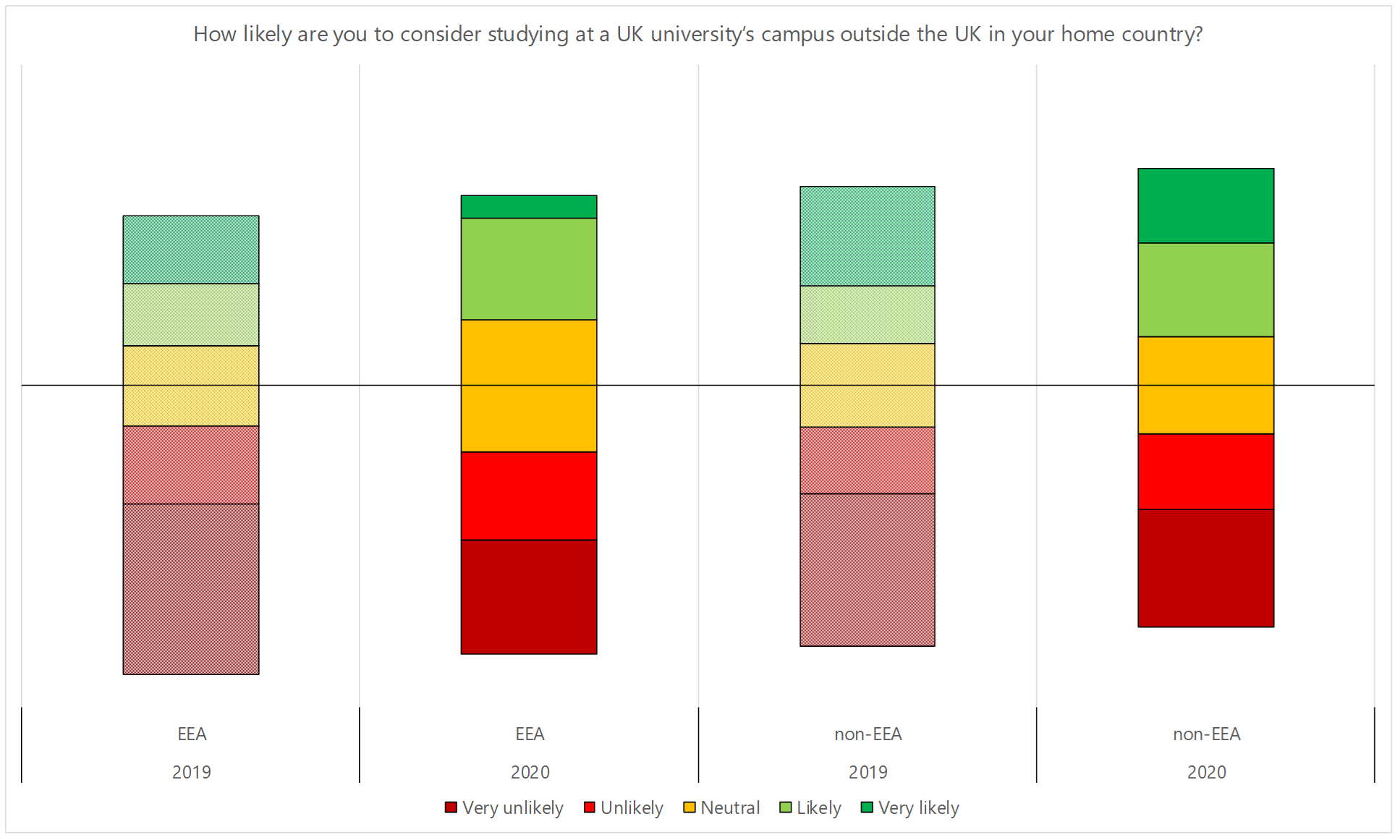
Some students, especially outside the EEA find the idea quite appealing: it is not coming with the promise of a full-blown overseas experience, but certainly caters to the needs of a significant portion of them. For EEA students, however, studying at home loses a lot of the appeal of British universities. This probably is linked to the type of experience these students are looking for: studying in their home countries lacks a significant part of their “international” study experience.
What’s next?
With Brexit now almost in place, 2020 still poses a large number of challenges ahead. Specifically, student interest can swerve fast due to global events such as the Covid-19 pandemic and the US presidential election. The effects of the first can be estimated, and the situation can be closely monitored (not lastly through our Covid-19 student interest dashboard). For other issues, such as the impact of Brexit on EEA student intake, this will require a more ad-hoc approach that is tailored to the needs of your institution.
Nevertheless, to navigate through 2020 you will need three things:
- The right data to take an evidenced decision
- The right insights to proactively secure your future actions
- The right digital tools to reach out to prospective students
Studyportals and Studyportals ACT are close to British universities in these uncertain times.
Feel free to contact us and find out how our solutions can help you get the most out of your digital strategy.
For more updates, follow us!




